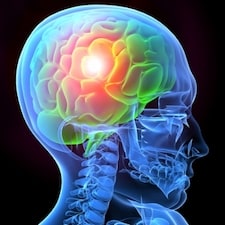A more accurate manner to diagnose Traumatic Brain Injuries
 Every year an estimated 57,000 Americans die and 288,000 are hospitalized to be treated for traumatic brain injury. Another 2.5 million are treated at the emergency room and then released immediately. Traumatic brain injury is a contributing factor in 30% of all injury-related deaths in the US. While only a small percentage of all people suffering TBI die, many of them suffer long lasting health consequences.
Every year an estimated 57,000 Americans die and 288,000 are hospitalized to be treated for traumatic brain injury. Another 2.5 million are treated at the emergency room and then released immediately. Traumatic brain injury is a contributing factor in 30% of all injury-related deaths in the US. While only a small percentage of all people suffering TBI die, many of them suffer long lasting health consequences.
Almost half of the diagnosed traumatic brain injuries are caused by fall, 15% are caused by people being struck by or against something, 14% by motor vehicle accidents and another 9% by assault. Traumatic brain injury is often caused by the negligence of others.
Depending on the intensity of the impact, a traumatic brain injury can cause unconsciousness, confusion, memory problems, learning difficulties, speaking problems, unsteadiness, vision or hearing problems. Patients who suffered TBI can also develop Alzheimers or other types of dementia.
While it has been difficult so for doctors to clearly assess the degree of severity of a traumatic brain injury, a new study released today by the National Institute of Health found that the level of serum neurofilament light chain (NfL) can provide a clearer diagnosis of a mild, moderate or severe TBI months to years after the accident occurred. The scientists studied more than 200 patients between 2009 and 2018 and assessed the level of four different proteins in their blood at 30, 90, and 180 days, and 1, 2, 3, 4, and 5 years after TBI. They found that one of the proteins, serum NFL was able to detect the severity of a traumatic brain injury months to years after the patient was injured. These findings are very exciting because while it has long been documented that TBI can have long lasting and even sometimes permanent consequences, it was so far impossible for doctors to detect if a patient still suffer from TBI or not.
The study can be found here
 New York Personal Injury Attorneys Blog
New York Personal Injury Attorneys Blog


